David DePoe was a volunteer with the Company of Young Canadians (CYC), a youth service organization established by the Pearson government that was unique to its generation in that it was also a Crown corporation. DePoe worked with Yorkville’s hippy community, often in co-operation with welfare and church organizations. By most accounts, he did good work helping to provide legal, medical, psychiatric and welfare services for youth in the area but DePoe did not seem capable of avoiding controversy.
In January 1967, DePoe and another CYC volunteer, Lynn Curtis, were identified as CYC volunteers at a Student Union for Peace Action (SUPA) demonstration outside the U.S. Consulate in Toronto against the Vietnam War. After this news hit the press, the Prime Minister's Office expressed its concerns that the CYC had become a political action instrument rather than a service instrument and that it was putting the Prime Minister in an embarrassing situation.[1] DePoe, though, continued to be involved with the hippie community in Yorkville and was instrumental in leading a movement in August 1967 whose aim was to turn Yorkville Avenue into a pedestrian mall.
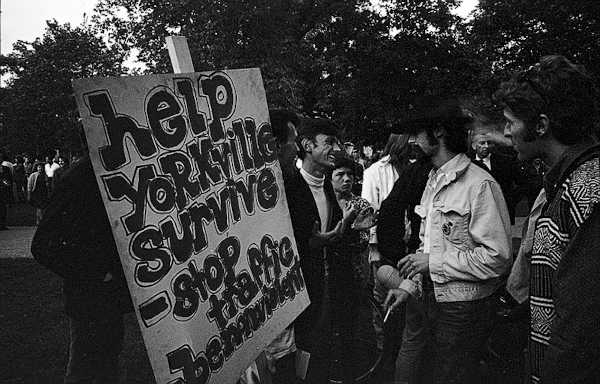
David DePoe prepares to lead a protest against Yorkville's traffic, August 1967
(York University Libraries, Clara Thomas Archives & Special Collections, Toronto Telegram fonds, ASC00615).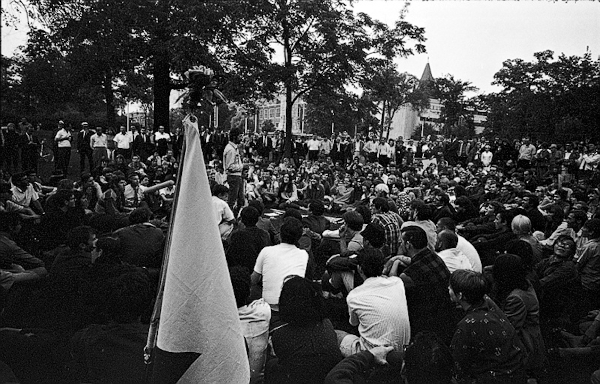
ASC00617 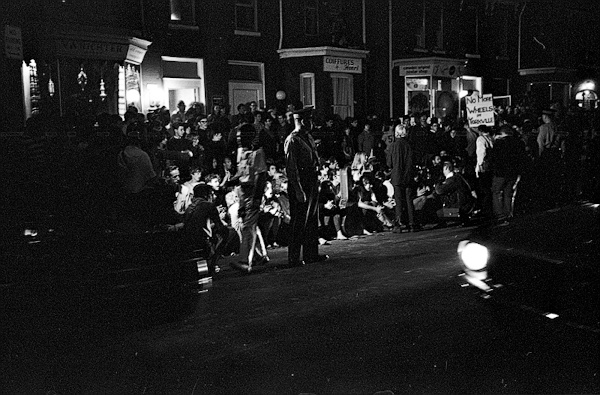
ASC00618 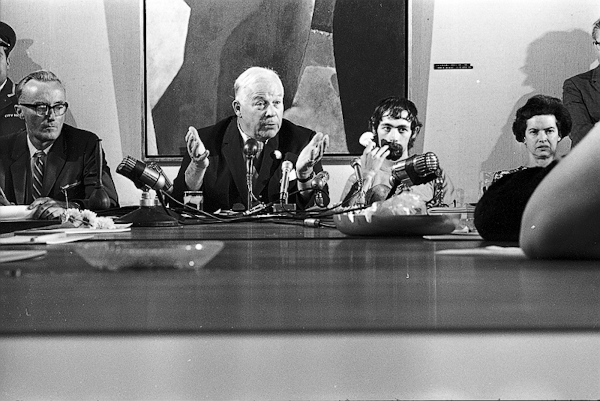
ASC00620 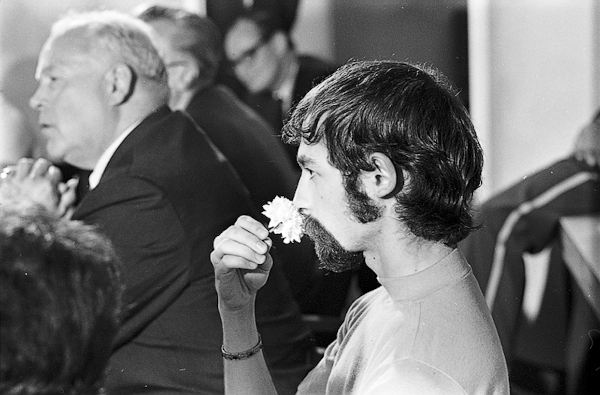
ASC00621 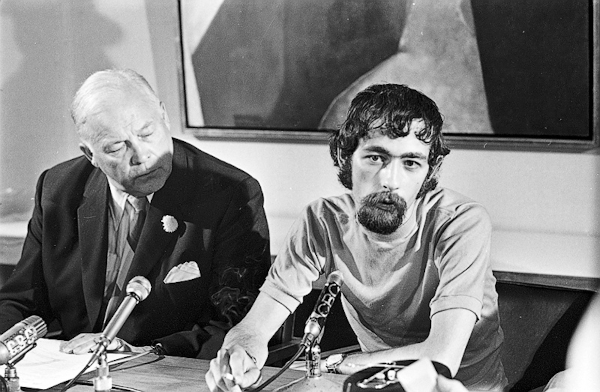
ASC00622 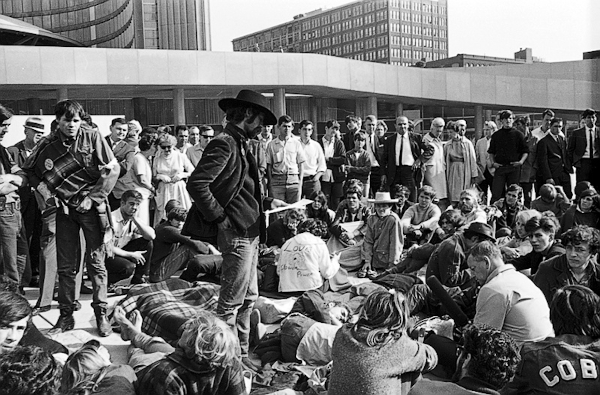
ASC00623 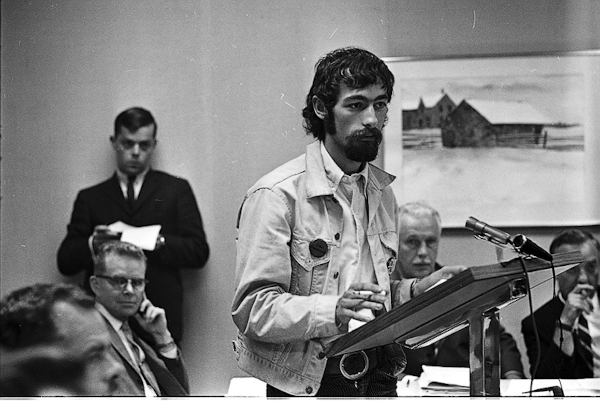
ASC00624
The ensuing debate was captured in Robin Spry's film Flowers on a One‑Way Street and took on the shape of an inter-generational battle between the older, established order and youth. It rehashes many of the contrary positions that made radical youth organizations and the federal government such odd bed fellows when the CYC was announced in 1965. It juxtaposes the position of DePoe, fighting for intellectual and spiritual values, against the profit-seeking motives of City Council.
DePoe's personality is placed squarely against that of Alan Lamport, a particularly blunt and patronizing city councillor whose primary suggestion for stopping congestion in Yorkville was for the hippies to leave altogether thereby reducing the number of people who drove through the area to look at the 'freaks'.[2] DePoe was eventually arrested after several nights of protests in Yorkville but he was finally able to secure a proper hearing with City Council. When it happened, though, it was clear that the two sides simply did not understand each other, and that the existing generation gap had only become exasperated by the actions of DePoe and the CYC. In his defense of the Yorkville actions, DePoe advocated the rhetoric of the "Aims and Principles" of the Company of Young Canadians itself. He wanted to talk to the council about opening up community and not closing it and he went on record as saying that the public actions of youth that had taken place were beneficial to this endeavour on its own.[3] Lamport, not to be defeated, though, had his own interpretation of the "Aims and Principles" and demonstrated this knowledge when he demanded that DePoe explain to him where in the "Aims and Principles" of the Company of Young Canadians, "it says that you are supposed to defy authority?"[4]
[1] Daly, Margaret, The Revolution Game: The Short, Unhappy Life of the Company of Young Canadians, Toronto, New Press, 1970, pp. 110-112.
[2] Flowers on a One‑Way Street, Director, Robin Spry, Montreal : National Film Board, 1967.
[3] Ibid.
[4] Ibid.
